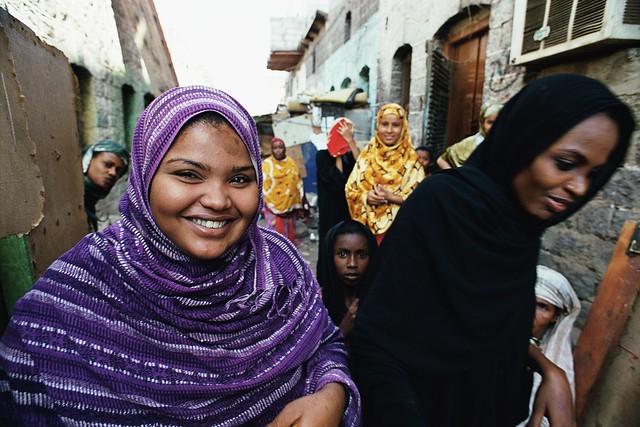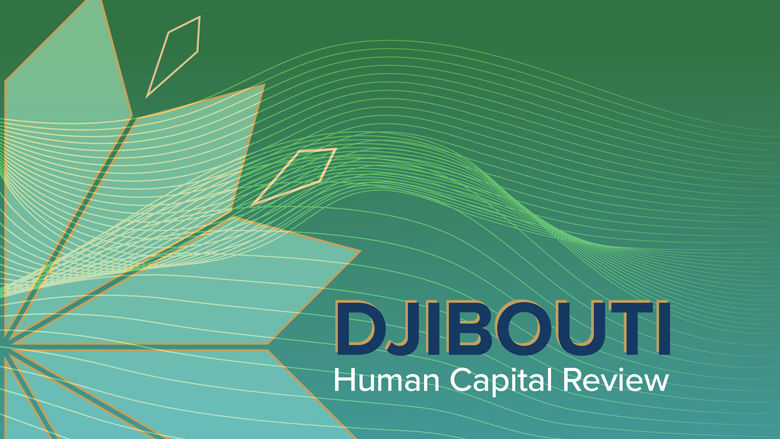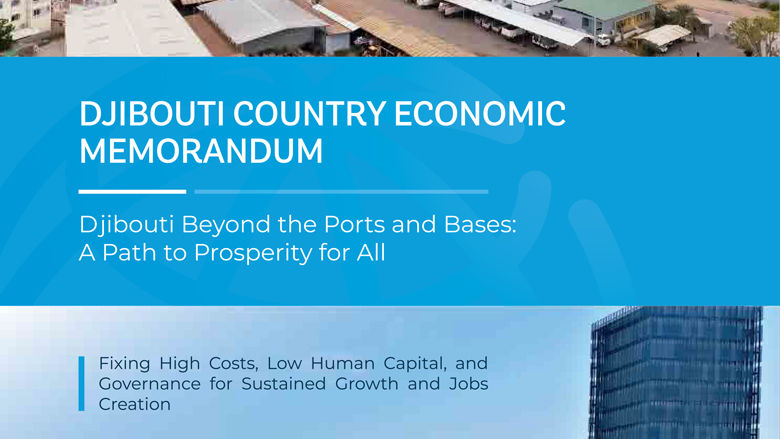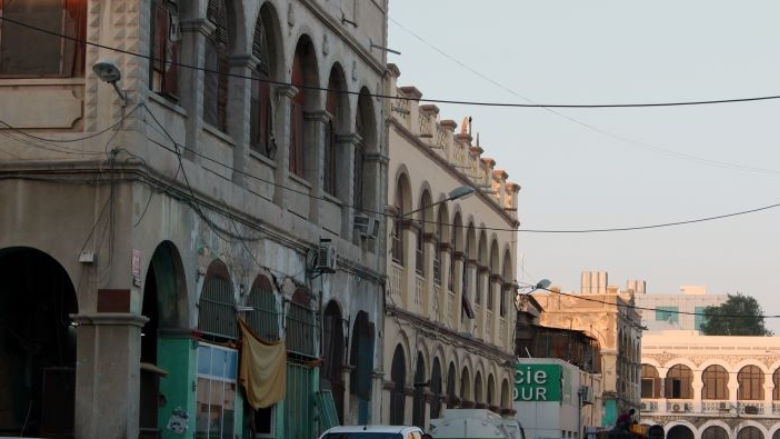? ??
A heavy reliance on imports to satisfy domestic demand makes Djiboutian households extremely vulnerable to international trade shocks. Since February 2022, food prices, particularly for wheat, vegetable oil and fruit and vegetables, have risen sharply disproportionately affecting the poor and vulnerable. Although the government has not authorized an increase in the price of necessities, these inflationary trends are putting pressure on households. Increases in food and fuel prices for basic commodities have a negative impact on poor and vulnerable households, exacerbating their living conditions and eroding their human capital, leading them to resort to negative coping mechanisms.
The $30 million project provides cash and in-kind transfers to crisis-affected households while strengthening adaptive social protection mechanisms to enhance preparedness for communities to respond to future crises and contribute to the fight against poverty.
Specific results include:
- Through the project, 15,000 households and 2,200 students are receiving emergency support cash and in-kind transfers, and students¡¯ stipends respectively. In total, emergency safety net transfers currently reach 86,200 beneficiaries, of which 34,480 are women.
- Through establishment of adaptive social protection mechanisms, support also includes creation of awareness among the communities on crises, building institutional and community capacities to prepare for the crises and respond when the latter happen.
- As a result of the project, 75% of targeted localities will be equipped with improved mechanisms for linking social protection to crisis response.
- In addition, the project contributes to community strengthening and development through the establishment of village credit unions and the creation of income-generating activities.
- Furthermore, 60% of the beneficiaries of safety net transfers in rural areas have now an account in an acceptable financial institution which will go a long way in promoting economic empowerment of the poor and vulnerable households.
The Government of Djibouti has placed human capital and education and at the center of development policies. The Ministry of Education and Vocational Training is rolling out a comprehensive education reform to increase access, quality and learning. The Expanding Opportunities for Learning Project is one of the largest and highest performing projects in the Djibouti portfolio, with financing of US$30.35m from IDA, the refugee window, the Global Partnership for Education and Education Above All Foundation, Qatar. Started in February 2020, just before the COVID-19 pandemic, the project has supported the achievement of a series of results including:
- Increasing access and inclusion:?over 13,000 out-of-school children have been enrolled in school so far with a further 20,000 targeted over the next two years.? This reflects renewed efforts to increase enrolment from a low base, including a new program of accelerated learning to provide catch-up learning for students who dropped out early and strategies to enhance girls¡¯ enrolment and integrate children with special needs into public schools.
- Reducing repetition and improving efficiency:?repetition in Grade 5 has decreased sharply from 24% to 6% reflecting commitment from the Ministry to improve retention through policy changes to promote continuous assessment, facilitate progression from one academic year to the next and strengthen accountability at the school level.? This progress significantly increases the efficiency of the education sector and use of scarce resources.
- Expanding pre-school education to improve school readiness:?pre-school education is a new area for Djibouti. The project has supported the Ministry to lay the foundations of pre-school policy spanning the establishment of quality standards to regulate public and private provision, revision of the pre-school curriculum, development of training modules and a mechanism to quality assure all pre-schools.? Provision is targeted at rural areas and vulnerable children, where the return on investment is highest.? To date, the project has supported the construction, rehabilitation and equipment of 43 new pre-school classrooms, facilitating the enrolment of over 1075 pre-school children.? The Ministry¡¯s commitment to provide 1 year of preschool to all children by 2035 represents a concerted effort to ensure that all children can benefit from early development of cognitive and socioemotional skills.
- Improving learning outcomes:?the Ministry is implementing a package of measures to prioritize learning. The revision of the curriculum has been rolled out for all grades of primary and lower secondary with a focus on the building blocks of literacy and numeracy in the early years, life skills and relevant content. All teachers benefit from professional development with regular follow up from pedagogic advisers and school principals to support more student-oriented teaching practices.? There has been a major push on conducting learning assessments to measure progress on learning, identify areas for additional attention and strengthen institutional capacity. Results of a recent Early Grade Reading Assessment demonstrate improvements in student learning outcomes in reading, making Djibouti one of only a few countries to show an increase in learning during COVID-19.
- Promoting education for refugees:?Djibouti has a progressive policy for refugees to access schooling including making the curriculum and learning materials available in refugee languages.
- Introducing the reforms as an integrated package, building understanding of the reform among education officials, teachers, and parents down to the school level along with reorganizing the selection of competent educational leaders have been central to embedding the reform and promoting systemic impact.
?
Djibouti has traditionally been a host country for populations from neighboring countries. As of February 2024, Djibouti hosts 31,532 registered refugees and asylum-seekers, of which 85% live within the refugee villages. Registered refugees and asylum-seekers come from Somalia (13,537), Ethiopia (13,018), Yemen (3,420), Eritrea (1,478) and others (79).
Protracted and new displacement has further exacerbated the situation of communities that host refugees with increased competition for scarce social services, economic opportunities, and natural resources. The forcibly displaced - both refugees and internally displaced persons (IDPs) - are growing at a steady pace due to conflicts in neighboring countries and the persistent drought in the region. The influx of refugees puts even greater pressure on host communities, especially in rural areas that are already struggling with weak service delivery and few socio-economic opportunities. Across all the sites, the surrounding host population faces greater food insecurity and has limited access to basic social services and livelihood opportunities. Women and girls are disproportionately exposed to economic and social vulnerabilities and face multiple challenges associated with poorer health, lower education, and labor market outcomes primarily in the informal economy compared to refugee men.
In consultation with UNHCR, the World Bank has determined that the Government of Djibouti has articulated a strategic approach to move towards long-term solutions that benefit refugees and host communities, while managing broader migration issues, including those issues facing undocumented economic migrants.
Against this backdrop, the Development Response to Displacement Impacts project has made US$30 million (US$ 20 million initial financing and US$10 million additional financing) available to improve access to basic social services, expand economic opportunities, and enhance environmental management for refugee-hosting communities. The project has implemented an integrated local development approach supporting long-term solutions benefitting refugee-hosting communities through its focus on integrated investments in social and economic infrastructure, improved natural resource management in refugee hosting areas, and regional learning and knowledge sharing on forced displacement.
Results as of March 2024 include:
- 135,830 people have benefitted from improved access to basic services such as education, healthcare, and renewable energy;
- 54,437 people have been provided with access to renewable energy;
- 51,794 workdays were created for short-term employment in the sub-projects;
- 5,588 people, including beneficiaries of livelihoods support involving business grants and entrepreneurship trainings and beneficiaries of productive agricultural kits, reported an increase in income.?
Last Updated: Oct 22, 2024






